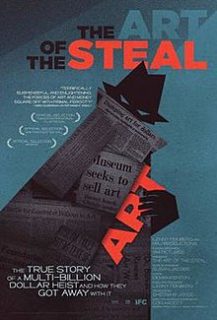Dr. Albert Barnes, a Philadelphia physician and chemist, amassed one of the world’s greatest art collections. He established The Barnes Foundation to own and display his art according to his very specific, highly idiosyncratic wishes. The Foundation was designed to function as an educational institution to teach Dr. Barnes’ principles of art. When Dr. Barnes died in a tragic car accident in 1951, The Barnes Foundation was to have continued as an art teaching institution in perpetuity. However, subsequent events undermined Dr. Barnes’ intent. Powerful monied and political interests in Philadelphia and the state of Pennsylvania, perhaps mismanagement, and inflexible trust provisions combined to shift the fate of the art collection away from Dr. Barnes’ vision. The Barnes Foundation art collection is now housed in downtown Philadelphia adjacent to the Philadelphia Museum of Art. This fact would undoubtedly have upset Dr. Barnes who publicly expressed his disdain for that institution. [1]
The former Barnes Foundation in Merion (left), The new Barnes Foundation in Philadelphia (right)
In many ways Dr. Barnes’ estate planning represented perhaps the best possible planning available at that time. Yet, despite his planning efforts and the substantial endowment that The Barnes Foundation had at the time of his death, the Foundation ultimately was not able to carry out and sustain his wishes. What went wrong? What might we learn from Dr. Barnes and The Barnes Foundation story that might help us think and plan in volatile, uncertain, and complex times?
One approach that might have helped Dr. Barnes is scenario planning. This entails a rigorous process of imaging an ideal future vision, then imaging potential scenarios that might disrupt his vision, and crafting contingency plans to avoid or address obstacles that might undermine achieving the ideal future vision. Contemporary scenario planning has been influenced by the work of Shell Oil Company. [2]
Imaging the world after the collapse of the Soviet Union, in the 1970’s Shell assembled a diverse group of thinkers, domain specialists, as well as generalists in business and management. Together, they developed a process that has since shaped much of Shell’s decision making and strategic planning. Over time, their methods have also influenced military, business, and government decision makers. Investment professionals, statisticians, and even poker players use scenario planning techniques to deal with uncertainty and multiple variables outside of one’s control.

Theatrical release poster by Neil Kellerhouse and Erik Buckham
What if Dr. Barnes had imagined circumstances in which his collection was running short of money? What if he had imagined a situation where his trustees had ulterior, selfish motives? What if he had anticipated that the art world and the City of Philadelphia would change its opinion about his collection and covet the collection? All of these things subsequently happened….and the foundation was ultimately unable to adequately deal with them. Perhaps, with the benefit of scenario planning, Dr. Barnes might have supplemented his planning documents in a way that might have given the Foundation greater flexibility and more options to sustain itself according to his deepest desires and wishes.
In many ways scenario planning is more akin to writing a novel or a piece of science fiction than it is a branch of traditional financial and estate planning. The process calls for a great deal of imagination and for a deep understanding of human behavior, human motives (both good and bad), and what is possible in a world that’s rapidly changing. It is essentially an artistic endeavor. It is also well-suited for today’s COVID-19 environment.
At a time when predictions – whether it’s regarding Covid-19, economic, political, social, psychological, or cultural impacts – can’t be based on reliable extrapolations from the past or verifiable factual information, scenario planning holds the potential for us to think, plan, and make decisions in a very uncertain environment. I believe this capability will help our clients steward their families and their True Wealth during these challenging times.
[1] “The Art of the Steal”, a documentary film by Don Argott, 2009.
[2] Shell Scenarios, https://www.shell.com/energy-and-innovation/the-energy-future/scenarios.html



